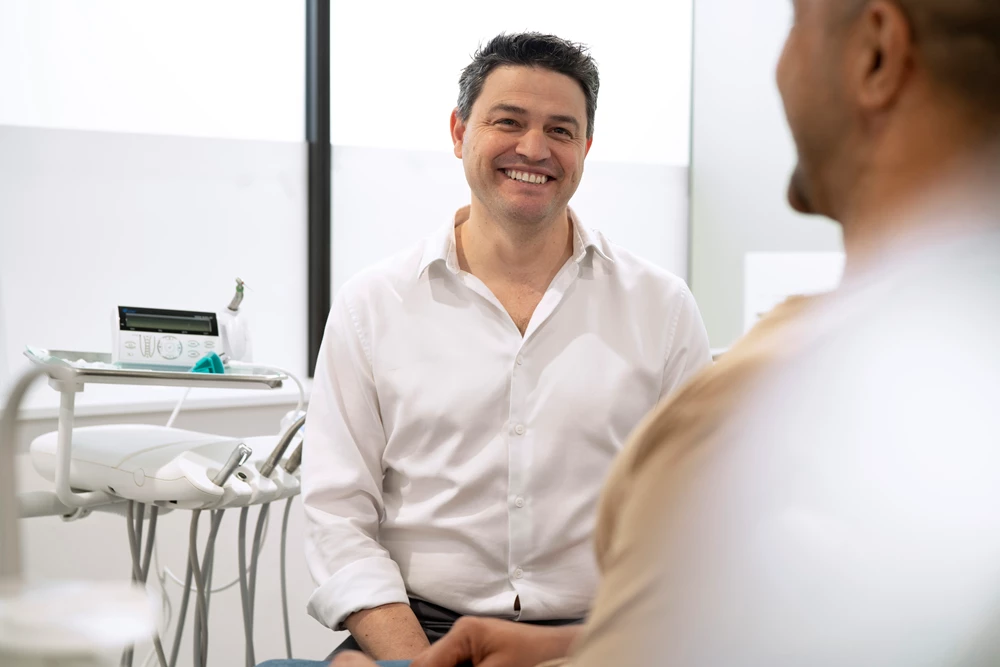Treatments
Oral Cancer Symptoms
We are one of the most professional and specialized clinics in diagnosing and treating oral cancer in Lahore. We respond using innovative technology and efficient solutions to patients with oral health issues. Our team of experts are committed to providing accurate diagnosis and treatment of oral cancer. As a result, the early-stage diagnosing and subsequent superior treatment options are well appreciated to reduce the recurrences among the patients.
You can get back on your feet and give your body the care it deserves with our oral cancer treatment. Smile makeover does matter – contact us today and get your brand-new beautiful smile.
What is Oral Cancer:
Oral cancer is the uncontrolled growth of cells in any part of the mouth including the lips, tongue, cheeks, gums, and throat. It can develop silently and stay unrecognized when it begins its existence. Some of these symptoms are
- Sore mouth
- Strange lumps
- Difficulty in swallowing
Are You in Pain?
If you’re in suffering and require emergency dental services, call us. We’ll schedule a quick appointment for you to see us.

Symptoms of Oral Cancer
Oral cancer may still develop silently and, if not diagnosed early enough, may not obvious any signs. It is important to detect the early warning signs for early treatment.
Some common symptoms are:
- Persistent mouth ulcers
- Stinging, burning, or throbbing in the mouth, neck or jaw
- Lumps in the cheeks, gums, or throat
- Difficulty in chewing or swallowing food
- Hoarseness or voice changes
- Numbness in the tongue or lips
- Weight loss without reason
- Mouth bleeding
Causes of Oral Cancer
Lifestyle and environmental factors are the causes of oral cancer. Although everyone is vulnerable, some behaviors and circumstances put one at a higher risk.
Common causes include:
- Tobacco usage
- Excessive alcohol consumption
- Poor oral hygiene
- HPV (Human Papillomavirus) infection
- Family history of cancer
- Higher exposure to UV rays (lip cancer)
- Age, higher risk for people who are above 40 years
Consult SmileOn Dental Clinic for oral cancer treatment and find out more about oral cancer treatment costs. Contact us today for all your dental treatments, like crowns and dental implants.
Get Prepared
You want solutions and guidance as quickly as possible when you schedule an appointment at SmileOn for a mouth issue. It makes sense that way. It’s helpful to consider what your dentist will need to know in order to properly diagnose and treat you.
Typically, your dentist will ask you about your medical history before performing a comprehensive oral, dental, jaw, tongue, throat, sinus, ear, nose, and neck examination. Depending on what your dentist thinks might be the problem, you might also require an x-ray.
Your dentist will ask you some questions about your teeth and any pain you may have, such as:
- Do you have any pain?
- How severe is the pain?
- Where do you feel the pain?
- Do you have any mouth sores?
- Do you have any areas in your mouth that you’re worried about?
Before to your appointment, consider your responses to these questions. Preparation can hasten the diagnosis.
FAQs
Oral cancer screening is very useful since the early stages of the disease are treatable. These are regular ulcers, pain, difficulty chewing and swallowing, loss of sensation and swelling. You should be worried, do not hesitate to see your dentist or doctor for an appointment.
Some of the early signs include mouth ulcers or sores in and around the mouth that do not heal as should be the case. Your mouth may have white or red patches as well. You can have swelling of the jaw or gum.
Some activities or habits increase the chances of getting oral cancer in an individual. There are habits such as smoking a cigarette, drinking too much, being exposed to the sun for a long time. Plus, taking an unbalanced diet and having genes from the patient’s relatives. It also increases risk when one is above 40 years of age.
Oral cancer treatment depends on factors like; type and stage of oral cancer and the condition of the patient. Early findings and interventions usually are favorable to the patient. Possible courses of action are radiation treatment, operation or chemotherapy. However, each case is unique.
Good oral hygiene practices can rule down the probability of getting oral cancer to a certain extent. Consider the following preventive measures: give up smoking, cut down on the amount of alcohol, eat a healthy diet, brush your teeth properly, and go to the dentist’s chair regularly. Besides this, make an effort to go for a check-up with your dentist at least once a year.
The survival rate of oral cancer depends on the stage at which the disease is discovered. However, the oral cancer treatment success rate is around 70%. Early interventions and inpatient management play a big role in enhancing the results experienced by patients.
No, braces have no effect in causing oral cancer. However, there are chances of getting oral health problems like infections and gum diseases, which in turn cause oral cancer. This will happen only if poor oral hygiene is observed while wearing braces.
Oral cavity cancer is a cancer that starts in the mouth, lining, lips, gums, bottom or top of the mouth, and the tongue. It links with factors such as tobacco, alcohol consumption and HPV.

